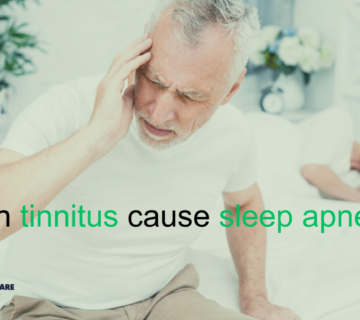Feeling breathless can be frightening. Many people rush to the hospital, worried about their heart or lungs.
But it’s crucial to remember; this isn’t always caused by a physical issue. It can often signal anxiety. But how to tell if shortness of breath is from anxiety?
This blog will help you figure out if anxiety is causing your breathlessness, and how to deal with it.
What is Shortness of Breath?
Shortness of breath, also termed dyspnea, is when you can’t seem to catch your breath. It might seem as though your chest is squeezing tight, and breathing becomes a struggle. Almost as if you’re suffocating. When it comes on out of the blue, it can feel terrifying.
Physical vs. Psychological Causes
Understanding if breathlessness is due to anxiety can appear complicated. There are both bodily and mental causes for this sign.
Physical Causes
- Asthma: This is a constant state where your lungs tighten and get agitated.
- Heart Disease: Conditions like cardiac arrest and heart problems can make breathing hard.
- Lung Diseases: Often, chronic obstructive pulmonary disease (COPD) and lung infection make it troublesome to breathe.
- Allergies: Intense allergic reactions may create breathing troubles too..
Psychological Causes
- Anxiety Disorders: Generalized anxiety disorder, panic disorder, and social anxiety might induce breathlessness.
- Panic Attacks: Instant bursts of heavy fright that usually bring physical signs, among them, difficulty in breathing.
How to Tell if Shortness of Breath is From Anxiety? – Symptoms
Is shortness of breath a symptom of anxiety? Yes, it can be.
Look out for these extra signs:
Rapid Heartbeat
Anxiety can cause shortness of breath, that’s because your body might surge into “fight or flight” mode when you’re anxious. This action speeds up your heart rate, which might contribute to the feeling of struggling to breathe.
Sweating and Trembling
Sweating too much or shaking uncontrollably? Both are typical red flags of anxiety. If these symptoms coexist with having a hard time breathing, then anxiety could be the backbone of it all.
Feeling of Dread
Frequently, anxiety can induce a looming worry or fear. Such emotions can hamper easy breathing.
Muscle Tension
Anxiety might lead to muscle strain. This strain can affect your chest and diaphragm muscles, making it tougher to breathe.
Diagnosing Anxiety-Induced Shortness of Breath
Seeking advice from a health expert is crucial if you’re often out of breath. Apart from possible physical reasons, anxiety could be the culprit.
Medical Evaluation
A detailed medical check is key to ruling out physical issues. This may include:
- Chest X-rays
- Electrocardiograms (EKG)
- Pulmonary Function Tests
Psychological Evaluation
If these tests don’t point to physical causes, then you may need a psychologist’s assessment. An expert in mental health can figure out if anxious feelings trigger your breathlessness.
Managing Anxiety-Induced Shortness of Breath
Once you grasp that anxiety is causing it, there are many ways to cope with your shortness of breath.
Breathing Exercises
Simple breathing exercises can help calm your mind and body. Try the following:
- Deep Breathing: Take a deep breath in through your nose, hold it for a second, then slowly let it out through your mouth.
- 4-7-8 Technique: Breathe in for 4 seconds, hold for 7 seconds, then breathe out for 8 seconds.
Physical Activity
Moving your body often can lessen worry and better your lungs. Activities like strolling, running, and yoga are great choices.
Mindfulness and Meditation
Being mindful and meditating helps you focus on here and now, and lessen worry. Check out apps like Headspace or Calm for useful guided sessions.
Professional Help
Getting professional help matters if your anxiety is intense. Cognitive-behavioral therapy (CBT) and medications can really manage anxiety disorders well.
When to Seek Immediate Help
Knowing when to get immediate help is key if anxiety triggers breath shortage. In case any of these happen, rush to the ER or dial emergency services right away:
- Severe chest pain
- Blue lips or fingers
- Confusion or loss of consciousness
Takeaway
It’s crucial to know if your breathlessness stems from anxiety or a bodily issue to treat it well.
If you believe that anxiety is the cause, then altering your habits, focusing on the present, and seeking expert aid can impact greatly.
Struggling with breathlessness due to anxiety and require professional support? K&P Healthcare Services are ready to assist.
Our healthcare team can guide you through your symptoms and identify potent treatments. Reach out to us now to arrange an appointment today.
FAQs
Can stress and anxiety cause breathing problems?
Yes, under stress or anxiety, your body switches on its “fight or flight” mode. The result? Rapid breaths and the uncomfortable feeling of not getting enough air.
Asthma vs Anxiety: How to tell the difference?
Asthma lingers, causing your airways to become inflamed and tight leading to symptoms like wheezing, shortness of breath and coughing. However, breathing issues triggered by anxiety often come with more conditions, including rapid heart rate, excessive sweating, and an impending feeling of catastrophe. A thorough medical exam aids in figuring out the true problem.
Can anxiety cause difficulty breathing?
Certainly, it can. During anxiety, stress reactions can make you feel choked even without any physical blockages.
Is shortness of breath a symptom of anxiety?
Yes, being short of breath often indicates anxiety. It’s particularly prevalent during times of extreme stress or panic attacks, creating a feeling of struggling to take a deep breath.
Anxiety causing breathing problems: what’s the correlation?
In response to anxiety, the body’s stress reactions can trigger fast and shallow breaths. This breathing pattern often induces a feeling of breathlessness and a tight chest, therefore fueling more anxiety.
Does anxiety make you feel like you can’t breathe?
Indeed, anxiety may result in a feeling of being unable to breathe, a common effect of hyperventilation. During hyperventilation, your breathing becomes quick and shallow. This disrupts the balance of oxygen and carbon dioxide in your body.
Why does anxiety make you feel like you can’t breathe?
It puts your body on high alert, often leading to quicker, less deep breaths. This change in breathing pattern can spur a sense of suffocation or breathlessness, as the body struggles to keep up with its standard breathing rhythm.






No comment